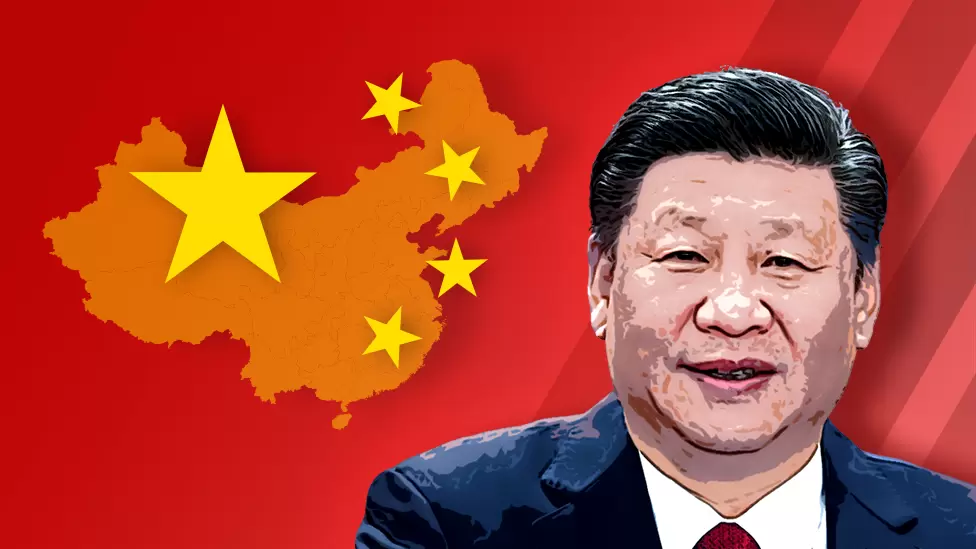20th Congress of the Chinese Communist Party and the world

In the neighboring People's Republic of China, the long-awaited 20th National Congress of the ruling Communist Party of China was recently held in Beijing. China’s current and future course was charted at the week-long (October 16-22) Congress of the Communist Party of China, which has a total of more than 96 million members and nearly 5 million grassroots organizations.
It is well known that the events of China, the world’s largest country after Russia and Canada, which has borders with 14 different countries and spreads over an area of 96 million square kilometers, have a direct or indirect effect on international relations. In China, which has 23 different provinces, five autonomous regions, four metropolitan cities under the central government and two special administrative regions including Hong Kong and Macau, and 56 tribes, the Party Congress held every five years affects the internal politics and the economic sector, as much as the policy decisions taken by the Congress affect world relations in one way or another.
China, a civilization that is about five thousand years old, has faced many ups and downs at different stages of history, however, the period after independence in 1949 and the establishment of the Communist Party 100 years ago are considered to be periods of historical importance in China’s prosperity, stability, and modernization. On October 1, 1949, Chairman Mao of the Communist Party announced the establishment of the People's Republic of China from Tiananmen Square in China.
Not only has China passed 70 years, but it has also achieved unprecedented success by bringing the political system, and social and economic development to a new level. As there have been significant changes in the world in the past decade, China has also made great strides in socio-economic transformation and modernization.
The political system adopted by China is the result of the revolution in the early decades of the 20th century. After 28 years of struggle–land reform measures, civil war, and the war against Japan, including the War of Independence–China’s new political system established in 1949 has surprised the world with its highest achievement in seven decades.
With the end of the ten-year Cultural Revolution in China in October 1976, China’s policy of reform under the leadership of Deng Xiaoping achieved rapid development. China, which went through a very weak state before the establishment of New China, has achieved exemplary achievements even in the field of science and technology in the last four decades and has established China as the second-largest economic power in the world.
Some political analysts believe that the policies and programs–of the political system with its own characteristics and liberal economy–adopted by the Chinese Communist Party in the recent period are the results of China’s miraculous rise in the 21st century.
Against this background, the National Congress of the Communist Party of China, which began on October 16 with the participation of about 2,300 delegates, will guide China to become a more advanced nation by reviewing the existing problems and challenges in the changing scenario.
For the past three years, the world has been facing various challenges such as the outbreak of the Covid-19 pandemic, regional conflicts, climate change, and recession. Therefore, the collective efforts of all nations and the world community are necessary to give a positive turn to international relations. It seems that China has taken the impact of the Ukraine war seriously. In this situation, the serious interest of Congress in terms of providing the right direction to international relations is evident from the statements made recently by China’s leadership.
In the context of the ongoing National Congress in China, the question related to the party leadership has attracted the attention of some countries and global media. As a result of the steps taken after Xi Jinping was elected Party General Secretary and President at the 18th National Congress of the Party held in 2012, there have been many qualitative changes in China’s political and economic fields. After the 19th Congress, China achieved the highest success in poverty alleviation in the period of five years. In addition to the complete eradication of poverty in China, China has succeeded in becoming a developed country in every field. Even Western countries, which sometimes take unnecessary interest in China’s internal politics, have not been able to deny the success of modernization and prosperity that China has achieved in recent years.
President Xi Jinping delivered a report at the opening of the Chinese Communist Party Congress at the Great Hall of the People in Beijing. Under China’s revitalization campaign, the plan to build a socialist modern country in an all-round way by integrating people of different races is divided into two phases: from 2020 to 2035, to realize socialist modernization in a fundamental way; from 2035 to the middle of this century, China plans to become an economic superpower and democratic. To build a modern socialist country, in recent years, a wide campaign against corruption has been carried out and some corrupt people have been severely punished. In the ongoing Congress, corruption is strongly discussed. Anti-corruption is the deepest self-revolution of the party.
In a situation where most of the countries in the world are forced to face many challenges due to climate change, Xi has maintained the concept of green water and rich mountains for the last ten years, mentioning that China’s sky is bluer, mountains are greener and water is cleaner. With deep-sea and underground exploration, supercomputers, navigation by satellite, production of giant aircraft, and biological medicine, China has entered the group of inventor countries and it is mentioned that this process will continue. All of these objectives are themes linked to China’s massive renaissance.
Similarly, in the situation where many challenges have been created in international relations and the situation of war has appeared in some areas, China has reaffirmed its old commitment to its foreign policy this time as well. China has been steadfastly implementing independent and peaceful diplomacy, protecting the basic rules of international relations and international judicial fairness, firmly opposing all forms of expansionism, opposing the Cold War and interfering in the internal affairs of other countries, as well as double standards, and resolving the Taiwan issue as peacefully as possible because it is its own matter.
President Xi’s announcement that he will not give up the right to use armed force despite trying to unite is very meaningful. China has issued a strong warning against external interference in Taiwan affairs.
As China is the main trading partner of more than 140 countries and regions in the world, the trade volume ranks first in the world. The foreign investment is at the forefront, and foreign openness and the determination to realize the Belt and Road Initiatives (BRI)project announced in March 2013 have directed the future direction. This means that China will move towards being more iberal and open. It will not accept anyone’s interference in internal affairs and will remain committed to becoming stronger in all aspects.
The interest of the western world is whether 69-year-old President Xi will come back to leadership for a third five-year term and what policy changes China will make for the next five years. On this occasion, during the opening of the convention, President Xi declared that the next five years will be decisive for China and that China will become even stronger.
President Xi, who has recently been placed on par with Mao and Deng Xiaoping, is almost certain to be re-elected as the party’s powerful general secretary for a third five-year term at this Congress. In his third term, China will move forward with the determination to become a superpower nation in all respects.









Leave Comment